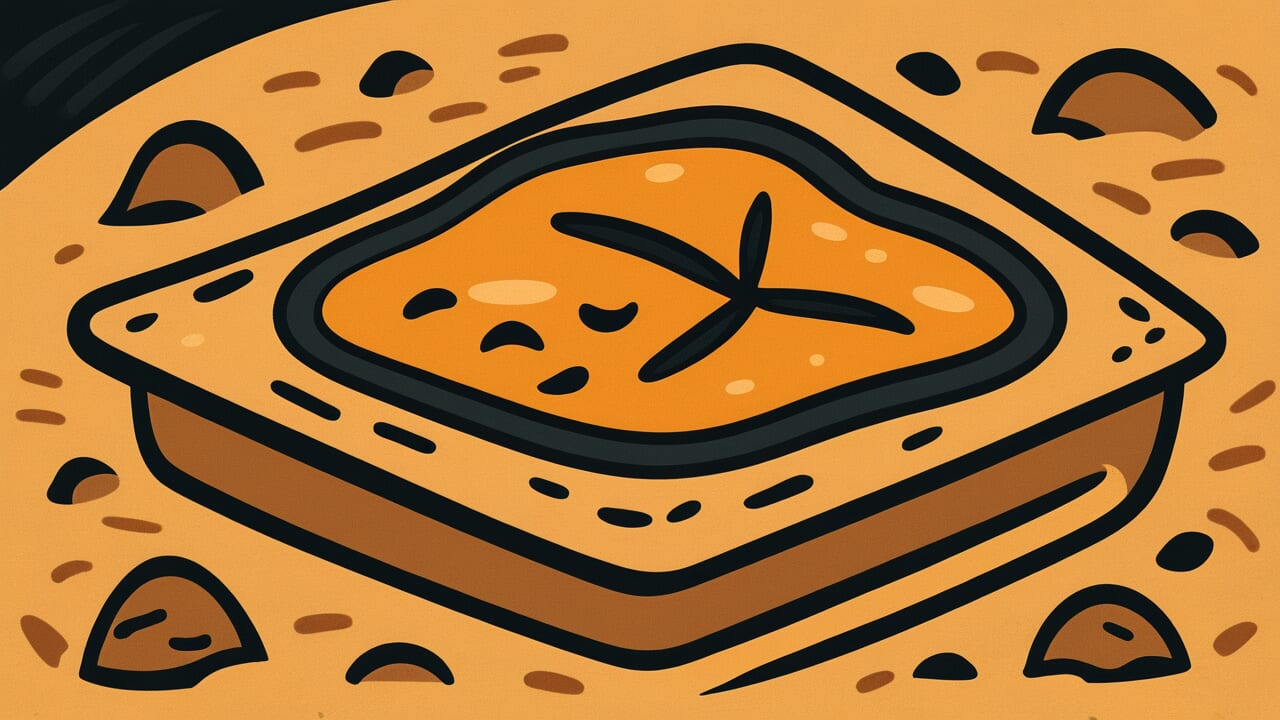How to Read “Grain does not grow on stone”
sekijō ni gokoku o shōzezu
Meaning of “Grain does not grow on stone”
“Grain does not grow on stone” is a proverb that means you cannot achieve results in a barren environment.
Just as crops won’t grow when you plant seeds on rocky ground, you can’t expect success when conditions aren’t right.
This proverb is used when pointing out the importance of environment and conditions.
It shows that results come not just from individual ability or effort, but from having the right foundation to use those abilities.
People use it when talented individuals lack proper environments, or when someone tries to start something without adequate preparation.
In modern times, this perspective is especially important for developing people and running organizations.
Even the most talented person cannot produce results without an environment where they can demonstrate their abilities.
In other words, the proverb teaches that if you want results, you must first prepare the right environment.
Origin and Etymology
There are various theories about the exact origin of this proverb, but its structure offers interesting insights.
“Ishigami” literally means “on stone”—hard bedrock without soil. “Gokoku” refers to the five main grains that sustained human life: rice, wheat, millet, beans, and sorghum.
In ancient Japan, which was built on agriculture, the quality of land was a critical issue directly tied to survival.
Crops could only grow in fertile soil, and only then could people live. But on rocky land, no matter how many seeds you planted, nothing would sprout.
This obvious fact was deeply etched into people’s lived experience.
The proverb likely emerged from actual agricultural experience.
When clearing land, farmers found that areas with thin topsoil and exposed bedrock yielded no harvest, no matter how hard they worked.
These bitter experiences eventually evolved into life lessons.
Beyond simple agricultural knowledge, this proverb expresses a universal truth: “Where the foundation isn’t prepared, no amount of effort will bear fruit.”
Through the concrete imagery of soil and seeds, it has been passed down as wisdom teaching the importance of environment.
Usage Examples
- This company has plenty of talented people, but “grain does not grow on stone”—there’s no system at all to utilize their abilities
- No matter how eager you are to study, “grain does not grow on stone”—working on advanced problems without mastering the basics won’t help you learn
Universal Wisdom
The proverb “grain does not grow on stone” touches on a deep truth about human society.
We often want to believe that effort alone can make anything possible. But reality shows there are walls that effort alone cannot overcome.
This proverb quietly teaches us that fact.
Seeds need soil to sprout. Fish need water to swim.
Similarly, human talent and effort need a receptive environment to flourish. We sometimes forget this obvious fact.
What’s interesting is that this proverb isn’t simply teaching resignation.
Rather, it offers wisdom about calmly discerning what’s needed to achieve results.
Instead of continuing to plant seeds on stone, it suggests finding fertile land or starting by cultivating soil.
Humans are creatures of hope. That’s why we sometimes pile up wasted effort in impossible places.
Our ancestors understood this human nature, which is why they left us this proverb.
Don’t misdirect your efforts. Don’t underestimate the power of environment.
This is timeless wisdom for navigating life.
When AI Hears This
Looking at why plants don’t grow on stone from the perspective of fundamental universal laws reveals something surprising.
Life is actually a “highly ordered state” in physics terms—a state of low entropy.
Entropy is simply the “degree of disorder.” According to universal laws, everything becomes disordered if left alone.
So to maintain a complex, ordered existence like life, you must constantly take in energy and preserve internal order.
Here we see the problem with stone. The minerals composing stone are already in a very stable chemical state—an “energetically settled, high-entropy state.”
For example, quartz, the main component of granite, has silicon and oxygen tightly bonded together and barely undergoes chemical reactions.
For plants to absorb nutrients through roots, chemical reactions like substances dissolving in water or microorganisms breaking things down are necessary.
In other words, matter must be in a “movable state.”
Soil can nurture life because it contains chemically “mobile,” low-entropy substances like organic matter and clay minerals.
On stone, you cannot create this “system where energy and matter flow.”
Life is a system that skillfully uses the flow of entropy, and it cannot exist where that flow has stopped.
Lessons for Today
What this proverb teaches modern people is the importance of having the discernment to assess environment before effort.
Working hard is a virtue, but if you work hard in the wrong place, that effort won’t be rewarded.
Is the environment you’re in now really soil where your seeds can sprout?
This question applies to every situation: workplace, school, relationships.
If you feel you’re on stone, you need courage to seek places with soil rather than forcing yourself to bloom there.
At the same time, this proverb teaches the responsibility of those who prepare environments.
If you’re in a position to nurture people—as educator, manager, or parent—you must start by cultivating soil.
If you’ve been entrusted with seeds of talent, you have an obligation to prepare an environment where they can grow.
Modern society is full of choices. That’s precisely why each of us has the freedom and responsibility to choose where to plant our seeds.
Avoid stone, choose soil. That judgment is the key to making your life fruitful.



Comments